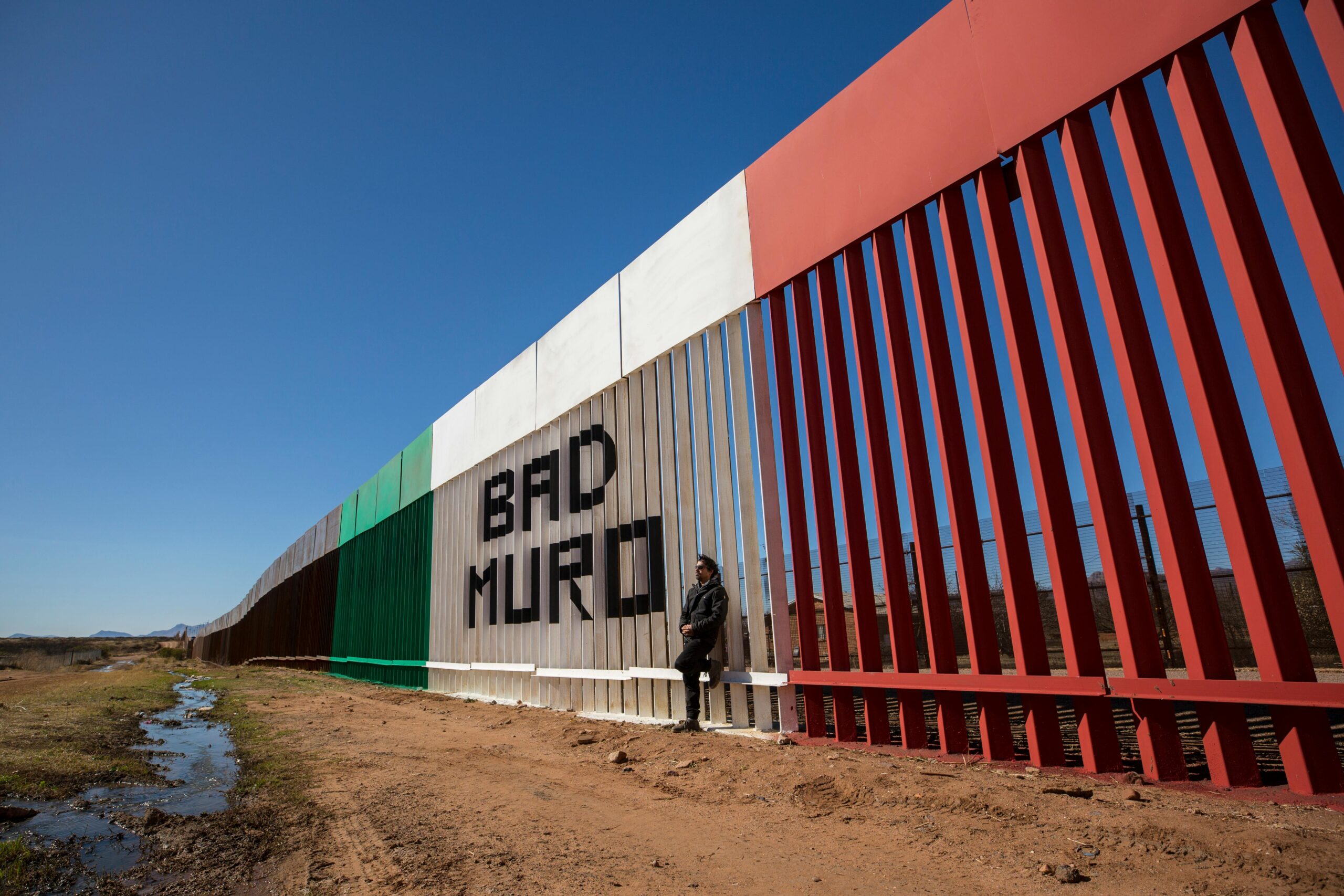The federal government’s reimposition of a travel visa requirement for Mexicans coming to Canada could result in higher numbers of asylum seekers making irregular border crossings, two immigration lawyers and a refugee advocate said.
Mexican nationals are now required to obtain visitor visas from customs officials who determine if tourist applicants are likely to apply for refugee status, Immigration Refugee and Citizenship Canada (IRCC) announced Thursday.
IRCC data shows that 25,236 Mexicans applied for refugee status in Canada in 2023, more than any other country last year.
 Nearly all refugee applicants from Mexico must enter Canada before making a refugee claim, immigration lawyers who spoke with New Canadian Media said.
Nearly all refugee applicants from Mexico must enter Canada before making a refugee claim, immigration lawyers who spoke with New Canadian Media said.
Small private sponsorship programs and referrals from UN camps are the only other routes to make an asylum claim in Canada, they said.
“In the face of a visitor visa, people will employ smugglers, they will deploy dangerous routes, and they will die in Texas and Arizona deserts,” said Sharry Aiken, associate professor and academic director of Queen’s University’s law program.
Mexico’s notorious homicide rate has been near its peak since 2018, according to The World Bank.
The Immigration and Refugee Board should be given the resources it needs to handle Mexican refugee claims, Aiken argued.
Since 2016, Mexicans have been permitted to enter Canada using online Electronic Travel Authorizations that cost $7 and didn’t involve an interview with a customs official.
But those travel permits are now only available to Mexicans who acquired Canadian and US visitor authorizations in the past 10 years, IRCC announced Thursday.
All existing Electronic Travel Authorizations issued before February 29 are now void, and visitors who previously obtained the permits must reapply.
Study and work permit holders won’t be affected.
New visa holders will be allowed to visit Canada for six-month periods over 10 years.
Aiken said Mexicans should be allowed to apply for refugee status from their home country, using a system called Source Country Class which ended in 2011.
“It would essentially work to disincentivize smuggling networks, disincentivize the use of the visitor visa pathway for asylum, and encourage people who were actually at risk to state their case to a Canadian official from inside their country,” Aiken said.
The new visa requirement poses an additional risk of human smuggling from Mexico to Canada, according to Chantal Desloges, Senior Partner at Desloges Carvajal Law Group.
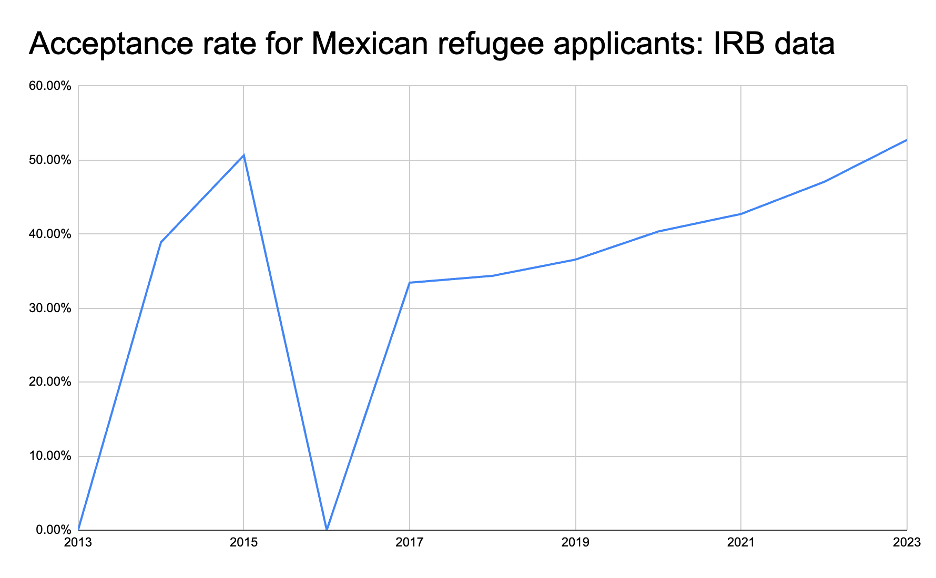
People who cross the US-Canada border irregularly are now less likely to present themselves to Canadian authorities, Desloges explained.
That’s because the Safe Third Country Agreement, which classifies the US and Canada as safe places for refugees, was expanded in March 2023 to include people who crossed the border irregularly.
In October 2023, The Canadian Press obtained an internal memo from Public Safety Canada warning of increased human smuggling due to the expanded Safe Third Country Agreement.
Only 95 Mexican nationals crossed irregularly from the US into Canada and applied for refugee status in 2023, while 240 such applications were made in 2022, and 35 in 2021, IRCC data shows.
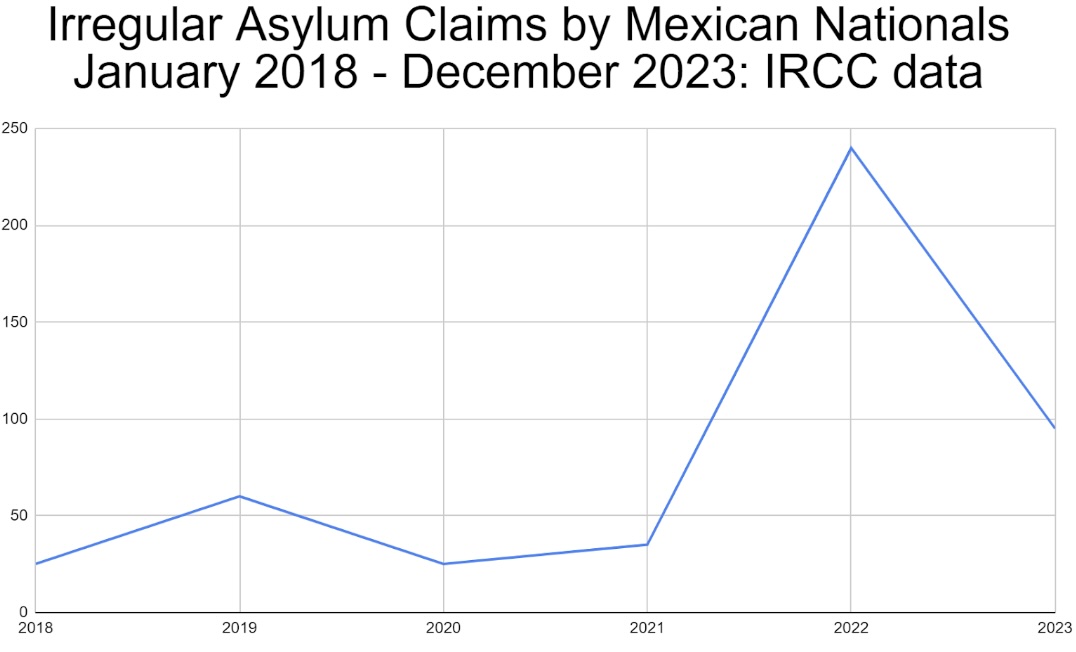 A non-profit Quebec refugee support group called Welcome Collective said Mexico was among the most common countries of origin for their clients.
A non-profit Quebec refugee support group called Welcome Collective said Mexico was among the most common countries of origin for their clients.
“I do expect that those types of crossings will increase,” Melissa Claisse, a communications coordinator for Welcome Collective, said about irregular crossings following the visa requirement rule.
The vast majority of Mexican asylum seekers to Canada are believed to have arrived under the now-changed Electronic Travel Authorization, the immigration lawyers said.
IRCC data shows 57.7 per cent of Mexican refugee cases are still pending, while 18 per cent have been rejected, and 15.3 per cent have been accepted.
There were 28,165 Mexican nationals awaiting decisions on their refugee claims as of January 2024.
Implementing the visa requirement on Mexicans is intended to free up resources at IRCC, the lawyers said.
Mexicans made up 18.3 per cent of all refugee applications to Canada in 2023, IRCC data shows.
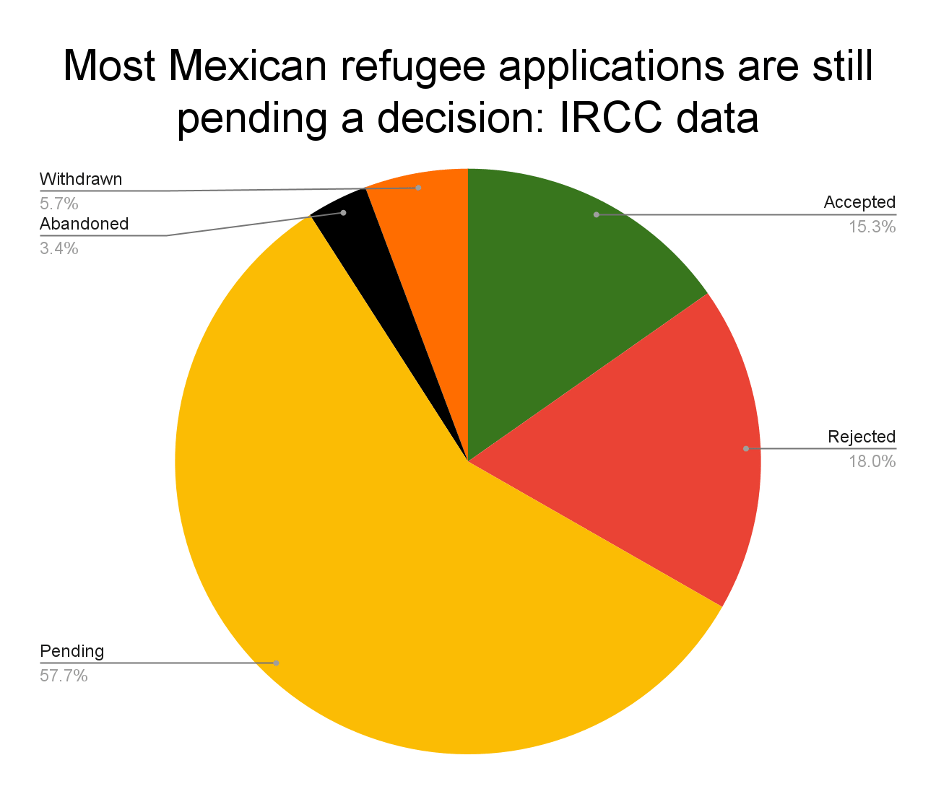 Flow of immigration to the U.S.
Flow of immigration to the U.S.
Using a travel visa to enter Canada and subsequently applying for refugee status is not illegal and does not count against the applicant’s claim, the lawyers agreed.
However, immigration lawyer Matthew Jeffery disagreed with Aiken, Deslodges, and Claisse on the issue of human smuggling and irregular border crossing.
“Re-imposing the visitor visa requirement may actually reduce the human smuggling of Mexicans,” Jeffery said.
Jeffery argued that Mexicans are entering Canada visa-free and then getting smuggled into the US, using refugee claims to Canada as a delay tactic to allow them to stay in Canada longer.
US Border Patrol apprehended, expelled, or denied entry to 4,868 Mexican nationals on the Canadian border between October 2022 and September 2023, and 1,905 between October 2023 and Feb. 5, 2024.
Just 882 Mexican nationals had encounters with the US Border Patrol when entering from Canada in 2022, and 192 Mexicans were apprehended, expelled, or denied entry in 2021.
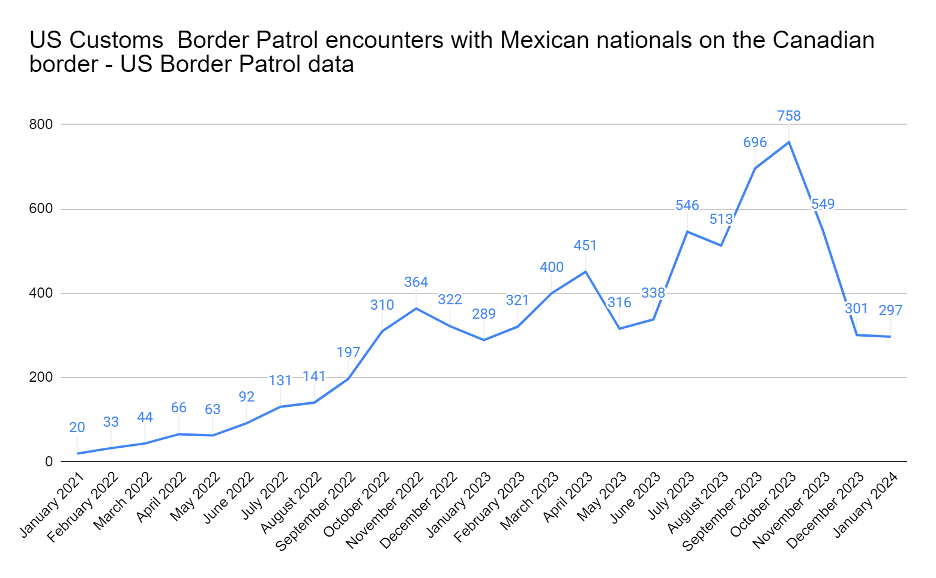 “They are using Canada as a back door into the USA because the southern border has become difficult to cross,” Jeffery said.
“They are using Canada as a back door into the USA because the southern border has become difficult to cross,” Jeffery said.
Throughout 2023, the US and Quebec governments as well as the Conservative Party of Canada had urged Justin Trudeau’s administration to reimpose the visitor visa for Mexicans.
The Harper government implemented the previous visitor visa for Mexicans in 2008 to quell a rise in asylum applications.
No one really knows if human smuggling, human trafficking, or irregular border crossings will increase following the new visitor visa requirement, according to Syed Hussan, Executive Director of the Migrant Workers Alliance for Change.
Hussan agreed with Jeffery that the flow of Mexican migration is to the US, and added that the Safe Third Country Agreement makes Canada particularly inhospitable to Mexicans who cross the border irregularly.
Human trafficking and human smuggling are very different, Hussan said, and the two terms shouldn’t get conflated.
“We call them human smugglers, but they’re often people who are actually providing a route,” Hussan said.
“Sometimes a brutal, violent, and inhospitable route. But that’s what immigration policies are.”
Human traffickers, on the other hand, force people into a country and make them work to pay off large amounts of debt, Hussan explained.
There is currently little evidence of human trafficking in Canada’s labour force, argued Hussan, and most of the trafficking that exists amounts to routine labour violations.
Statistics Canada says there were 3,996 incidents of human trafficking reported to police between 2012 and 2022. 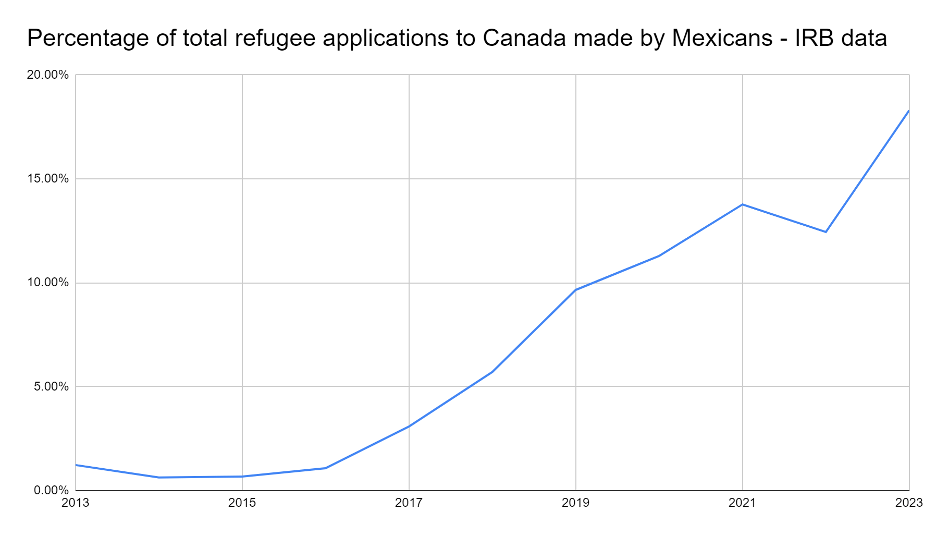
William Koblensky Varela is a journalist who reports on local news, finance, and politics. He has worked for Metroland Media, BNN Bloomberg, and Carbon Pulse among others.

